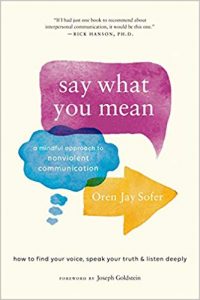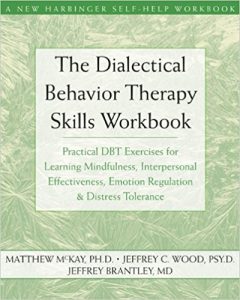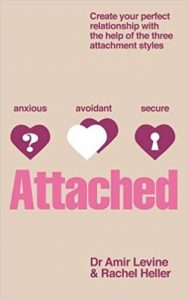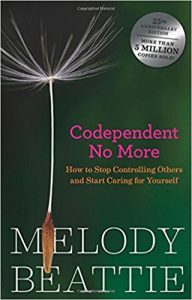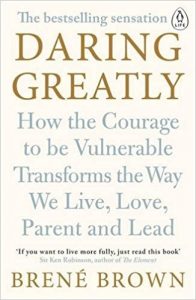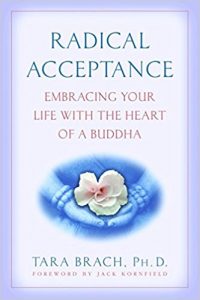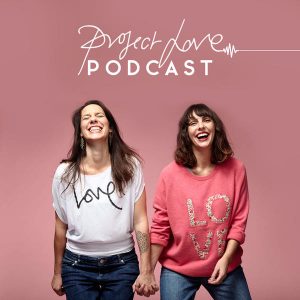“I define connection as the energy that exists between people when they feel seen, heard, and valued: when they can give and receive without judgment; and when they derive sustenance and strength from the relationship.”
– Brené Brown
“More than anything else, being able to feel safe with other people defines mental health; safe connections are fundamental to meaningful and satisfying lives.”
– Bessel van der Kolk
Table of Contents
Apps and Websites: Meeting New People
Apps and Websites: Peer Support
Websites: Developing Interpersonal Effectiveness Skills
Bibliotherapy
Meetings and Support Groups
Podcasts
Helplines
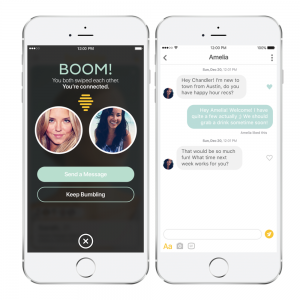

We3
“We3 enables you to meet friends near you that fit your lifestyle, have lots of common interests and share your beliefs and values. Instead of matching 2 users who “swiped right” on each other’s profiles, We3 automatically matches you in groups of 3 highly compatible users of the same gender […] by using an algorithm that considers over 150 individual characteristics when deciding who to connect.”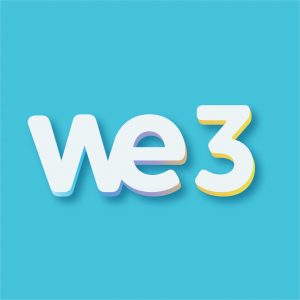
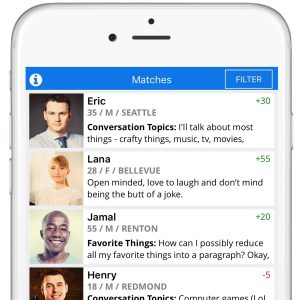

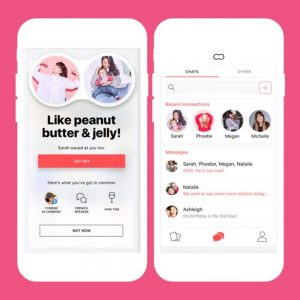




Pacifica
“Stress, anxiety, and depression can get in the way of you living your life. Pacifica gives you psychologist-designed tools to address them based on Cognitive Behavioral Therapy, mindfulness meditation, relaxation, and mood/health tracking. Share stories, advice and more with Pacifica’s peer-support community.”



7cups
“Feeling stressed, anxious, or depressed? Having relationship problems?Whether you’re stressed at work, having problems at home, or just in the middle of a bad day, sometimes you need to vent. But scheduling a therapist is time-consuming and expensive, and sometimes you can’t completely open up to friends, family, or coworkers.
Now you can get confidential emotional support anytime, anywhere with 7 Cups of Tea. Free. This app gives you the support you need in a way that fits your lifestyle. Get free anonymous emotional support and counselling on-demand from trained active listeners and therapists.”
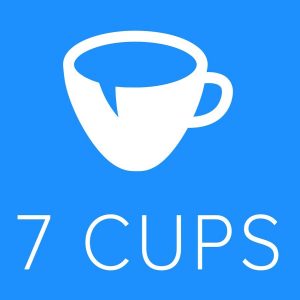

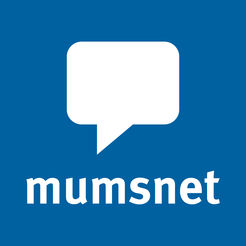

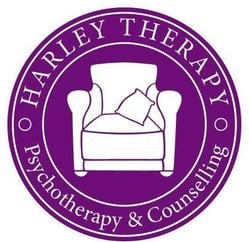

How to Make Friends
Gemma Scopes’s website How To Make Friends covers three areas:- How to make friends
- How to stop feeling lonely
- How to solve problems with friends
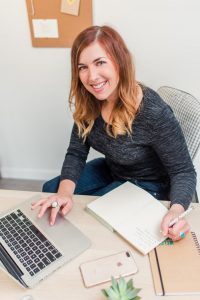





Say What You Mean: A Mindful Approach to Nonviolent Communication by Oren J Sofer
Non-violent Communication is the integration of four things:- Consciousness: a set of principles that support living a life of empathy, care, courage, and authenticity.
- Language: understanding how words contribute to connection or distance.
- Communication: knowing how to ask for what we want, how to hear others even in disagreement, and how to move toward solutions that work for all.
- Means of influence: sharing power with others rather than using power over others”
The Dialectical Behavior Therapy Skills Workbook: Practical DBT Exercises for Learning Mindfulness, Interpersonal Effectiveness, Emotion Regulation and Distress Tolerance by Matthew McKay, Jeffrey C. Wood and Jeffrey Brantley
"First developed for treating borderline personality disorder, dialectical behavior therapy (DBT) has proven effective as treatment for a range of other mental health problems, especially for those characterized by overwhelming emotions. Research shows that DBT can improve your ability to handle distress without losing control and acting destructively. In order to make use of these techniques, you need to build skills in four key areas: distress tolerance, mindfulness, emotion regulation, and interpersonal effectiveness.The Dialectical Behavior Therapy Skills Workbook, a collaborative effort from three esteemed authors, offers straightforward, step-by-step exercises for learning these concepts and putting them to work for real and lasting change. Start by working on the introductory exercises and, after making progress, move on to the advanced-skills chapters. Whether you are a professional or a general reader, whether you use this book to support work done in therapy or as the basis for self-help, you'll benefit from this clear and practical guide to better managing your emotions."
Attached: Identify your attachment style and find your perfect match by Amir Levine and Rachel Heller
We already rely on science to tell us what to eat, when to exercise, and how long to sleep. Why not use science to help us improve our relationships? In this revolutionary book, psychiatrist and neuroscientist Dr. Amir Levine and Rachel Heller scientifically explain why why some people seem to navigate relationships effortlessly, while others struggle.Discover how an understanding of adult attachment—the most advanced relationship science in existence today—can help us find and sustain love. Pioneered by psychologist John Bowlby in the 1950s, the field of attachment posits that each of us behaves in relationships in one of three distinct ways:
- Anxious people are often preoccupied with their relationships and tend to worry about their partner's ability to love them back.
- Avoidant people equate intimacy with a loss of independence and constantly try to minimize closeness.
- Secure people feel comfortable with intimacy and are usually warm and loving.
Co-dependent No More: How to Stop Controlling Others and Start Caring for Yourself by Melody Beattie
"The healing touchstone of millions, this modern classic by one of America's best-loved and most inspirational authors holds the key to understanding codependency and to unlocking its stultifying hold on your life.Is someone else's problem your problem? If, like so many others, you've lost sight of your own life in the drama of tending to someone else's, you may be codependent—and you may find yourself in this book.
With instructive life stories, personal reflections, exercises, and self-tests, Codependent No More is a simple, straightforward, readable map of the perplexing world of codependency-charting the path to freedom and a lifetime of healing, hope, and happiness."
Daring Greatly by Brené Brown
“Every time we are introduced to someone new, try to be creative, or start a difficult conversation, we take a risk. We feel uncertain and exposed. We feel vulnerable. Most of us try to fight those feelings—we strive to appear perfect.In a powerful new vision Dr. Brené Brown challenges everything we think we know about vulnerability, and dispels the widely accepted myth that it's a weakness. She argues that, in truth, vulnerability is strength and when we shut ourselves off from vulnerability—from revealing our true selves - we distance ourselves from the experiences that bring purpose and meaning to our lives.
Daring Greatly is the culmination of 12 years of groundbreaking social research, across every area of our lives including home, relationships, work, and parenting. It is an invitation to be courageous; to show up and let ourselves be seen, even when there are no guarantees. This is vulnerability. This is daring greatly.”
Check out Brené Brown’s TED Talk: The Power of Vulnerability.
Radical Acceptance by Tara Brach
"Believing that something is wrong with us is a deep and tenacious suffering," says Tara Brach at the start of this illuminating book. This suffering emerges in crippling self-judgments and conflicts in our relationships, in addictions and perfectionism, in loneliness and overwork--all the forces that keep our lives constricted and unfulfilled. Radical Acceptance offers a path to freedom, including the day-to-day practical guidance developed over Dr. Brach's twenty years of work with therapy clients and Buddhist students.Writing with great warmth and clarity, Tara Brach brings her teachings alive through personal stories and case histories, fresh interpretations of Buddhist tales, and guided meditations. Step by step, she leads us to trust our innate goodness, showing how we can develop the balance of clear-sightedness and compassion that is the essence of Radical Acceptance. Radical Acceptance does not mean self-indulgence or passivity. Instead it empowers genuine change: healing fear and shame and helping to build loving, authentic relationships. When we stop being at war with ourselves, we are free to live fully every precious moment of our lives."
Meetings and Support Groups
- Local Minds – join your local Mind to access talking therapies, peer support groups, advocacy, crisis care, and employment and housing support.
- Rethink Mental Illness – Rethink have around 110 registered groups across England. Activities vary and can include a focus on: self-help, information, peer support, campaigning, and fundraising. Many groups include all of these.
- Cruse Bereavement Care - Many local Cruse services offer groups where bereaved people can talk about what they are feeling and share advice. Groups might include: a set number of support sessions with the same group of people, friendship groups, family groups and groups for those in particular circumstances, such as those bereaved by suicide. You can also use the NHS website to find local bereavement support services.
- Bereaved Adult Meetup groups – Meetup has a number of bereavement groups around the world. Whether you are a caregiver and in the process of losing someone or already have lost someone, these groups allow you to talk about your challenges in a safe, supportive environment with people who have experienced it and understand.
- Gingerbread – Gingerbread offers groups for single parents to get together, meet new people and share experiences.
- Sex and Love Addicts Anonymous UK - SLAA is based on the Alcoholics Anonymous 12 step programme. It’s open to anyone who knows or thinks they have a problem with sex addiction, love addiction, romantic obsession, co-dependent relationships, fantasy addiction and/or sexual, social and emotional anorexia. Here are 12 characteristics of sex and love addiction.
- Co-Dependents Anonymous - CoDA is a set of informal self-help groups made up of men and women with a common interest in working through the problems that co-dependency has caused in their lives. The only requirement is the desire to develop functional and healthy relationships. Click here to read about the patterns and characteristics of co-dependence.
- Debtors Anonymous - DA is a 12 step programme for anyone who wants to stop incurring unsecured debt. DA is open to anyone who is having problems with money and debt and thinks they may be a compulsive debtor. They hold meetings at which people share their experience, strength and hope with one another. Click here for the ‘Do you have problems with debt?’ test.
- Gamblers Anonymous – GA is a twelve-step program for people who have a gambling problem. The only requirement for membership is a desire to stop gambling. Click here for the ‘Are you a compulsive gambler? ‘test.
- SMART Recovery – SMART Recovery is a network of self-help/mutual aid meetings where, through open and confidential discussion, participants help each other and themselves with recovery from any kind of addictive behaviour. SMART Recovery is science-based. This means that they constantly track how the scientific evidence is developing about addictions and what really works to help people change their addictive behaviours.
- Alcoholics Anonymous – AA is an international fellowship of men and women who have had a drinking problem. It is nonprofessional, self-supporting, multiracial, apolitical, and available almost everywhere. There are no age or education requirements. Membership is open to anyone who wants to do something about his or her drinking problem. Click here for Drinkaware’s ‘Are you drinking too much?’ test.
- Al-Anon - Al-Anon provide support to family and friends of alcoholics, regardless of whether that person is still drinking or not. Al-Anon Family Groups hold regular meetings where members give each other understanding, strength and hope.
- Drug Addicts Anonymous – DAA is based on the Alcoholics Anonymous 12 step programme. It attracts drug addicts from many walks of life, people who have used many different drugs, both legal and illegal. DAA aims to help people find solutions to their problems, and to enjoy life without drugs.
- Cocaine Anonymous - CA is a Fellowship of men and women who share their experience, strength and hope with each other that they may solve their common problem and help others recover from their addiction. The only requirement for membership is a desire to stop using cocaine and all other mind-altering substances.
- Narcotics Anonymous – NA uses their own text of 12 principles. They are open to anyone with a drug problem seeking help, regardless of what drug or combination of drugs have been used, and irrespective of age, sex, religion, race, creed or class. The only requirement for membership is a desire to stop using drugs.
- Overeaters Anonymous – OA is a Fellowship of individuals who, through shared experience, strength and hope, are recovering from compulsive overeating. They welcome everyone who wants to stop eating compulsively. The OA Programme is based on the 12 step recovery programme of Alcoholics Anonymous. Click here for the ‘Do I have a problem with food?’ test.
Project Love
“A podcast dedicated to love and relationships, self-love, real love stories, life design, finding a career you love and women who follow their hearts.”We recommend:
- Episode 2: The Art of Loving
- Episode 24: How to Set Healthy Boundaries and Learn the Art of Saying No
- Episode 23: Imposter Syndrome
- Episode 19: How to Love Without Losing Yourself
- Episode 38: The Power of Self-Love When It Comes to Finding Love and Making Love Last

